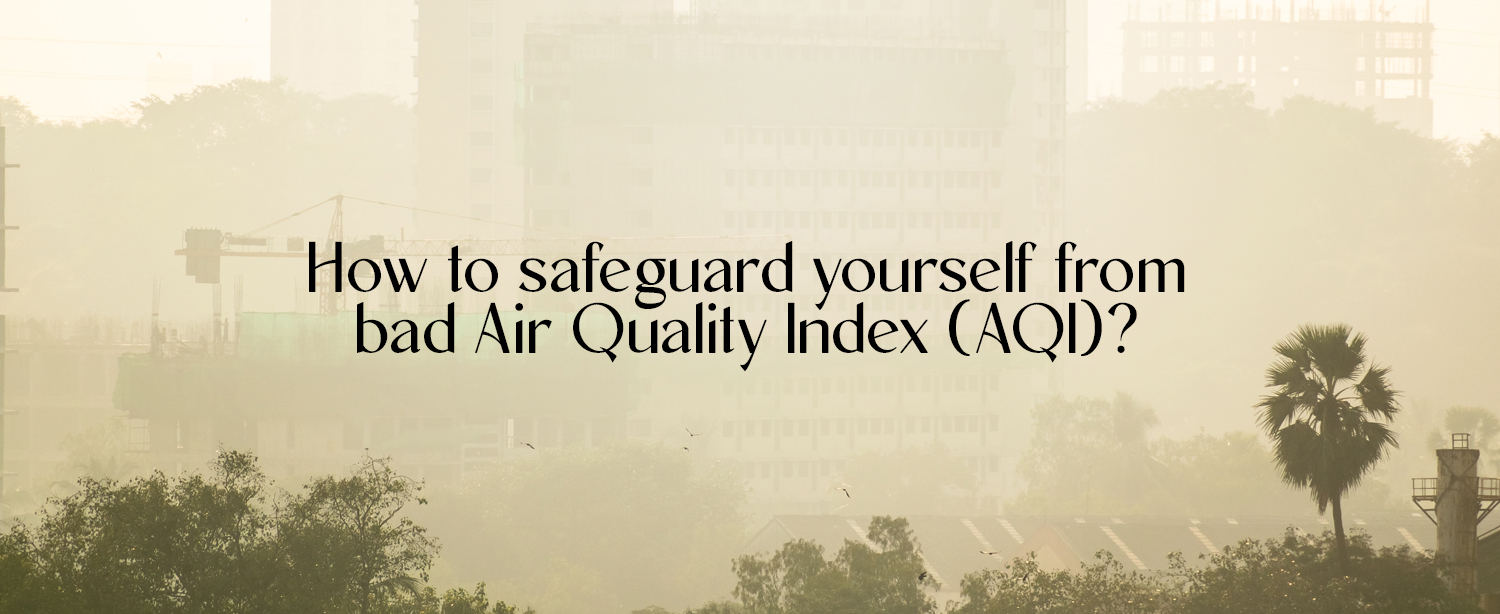Mumbai is choking with poor Air Quality Index (AQI) levels…
Air pollution has become an increasingly dangerous problem in many parts of the world including leading cities of India. Scientists have long been warning about the potential health effects that air pollutants such as ozone, particulate matter and nitrogen dioxide can have on humans – especially on young children who are still developing. Studies have shown that exposure to high levels of air pollutants can lead to developmental delays, respiratory issues, heart disease and even certain types of cancer.
Impact of Bad AQI
Doctors suggest that when AQI readings are between 200 and 300, it impacts vulnerable groups like senior citizens and children as well as people with co-morbidities. However, when the AQI readings cross 300 or 400, it affects a wider audience leading to various respiratory infections.
Particulate matter (PM) one of the most dangerous air pollutants is made up of tiny particles that get trapped in your lungs. When inhaled, PM particles can cause respiratory and cardiovascular problems, and its effects on children are even more alarming. Medical statistics suggest that inhaling PM 2.5 (particles with a diameter of 2.5 microns) levels exceeding 120 is dangerous and may cause severe health consequences including detrimental effects on the respiratory and cardiovascular systems. Also, children exposed to air pollution have higher rates of childhood asthma, respiratory infections, and chronic bronchitis.
First and foremost, it is important to monitor levels of air pollutants in your area so you can be aware of any potential risks. Lastly, it’s important to remember that while air pollution can be dangerous for everyone, it has an even greater impact on children due to their weaker immune systems. Therefore, it is essential for parents to be extra vigilant when it comes to protecting their children from the risks posed by air pollution.
Precautions for safeguarding against poor Air Quality Index (AQI):
- Stay informed
Stay informed about local AQI conditions, specifically identifying days and times to avoid outdoor activities in your neighborhood. Protect individuals with breathing problems and young children from exposure. - Use Masks
Regularly change masks during heavy pollution to prevent clogging. Consistent use of inhalers is crucial, especially for asthmatic individuals, particularly children, during outdoor activities. - Respiratory Infections
Refrain from exposure to poor air quality during respiratory infections, as it may exacerbate symptoms. Consider the trade-off between exercise benefits and harm from polluted air, especially for vulnerable individuals. - Reduce Exposure
Minimize outdoor activities, especially during early mornings and late evenings. Keep your windows closed to reduce exposure to polluted air. - Choose organic
Finally, try to choose natural or organic products for cleaning and household maintenance – many conventional cleaners can contain harmful chemicals which can contribute to indoor air pollution. - Control indoor air
Utilize air purifiers, ensure good indoor ventilation for better air quality.
It’s important to stay informed and take action when it comes to protecting your family from air pollution. We need to work together to ensure that we protect our children’s future by reducing air pollution and taking measures to improve air quality. By monitoring the levels of air pollutants in your area, taking precautionary measures, and educating yourself on the risks posed by air pollution, you can ensure that your family stays safe. Start now to create a better future for your family.
If you or someone you know is facing a breathing difficulty, chest discomfort or wheezing reach out to doctors at our Department of Pulmonary Medicine. Meet our pulmonologists to help manage your symptoms with prompt diagnosis. Call 022 42696969 for appointments or find more details on our website: https://www.kokilabenhospital.com/departments/clinicaldepartments/pulmonarymedicine.html


